Editorial: Panamagate verdict fallout
What was promised as the 'mother of all judicial verdicts' that would be remembered for 20 years has spawned the mother of all political controversies. Both the government and its critics have chosen to cherry-pick from the reports about the Supreme Court's (SC's) judgement in the Panama Papers case to justify their respective stances in its wake.
While the government insists the verdict has endorsed its position on the need for an investigation and fallen far short of disqualifying Prime Minister (PM) Nawaz Sharif as the petitioners wanted, the opposition has sensed the damage on a moral and political plane inflicted upon the Sharif family and is trying to press home the advantage through strident calls for the resignation of the PM.
However, despite rallies in Sindh on this basis led by the PPP and Imran Khan's announcement of a protest rally in Islamabad on April 28, the opposition appears as divided as ever, with the PTI chief reverting to his favoured 'solo flight' mode. The absence of a critical mass of the united opposition, within and outside parliament, can only bring relief to the government. However, every day brings news of fresh sections of society coming out against the PM. The latest in this category is the Lahore High Court Bar Association, which has demanded the PM's resignation within a week or it would launch a 'long march' that would dwarf even the lawyers' movement of 2007 whereas the Pakistan Bar Council has disassociated itself from such movement. Critics of the SC verdict have been relying on the two dissenting notes to the judgement, according to which the PM can no longer be considered sadiq or ameen (honest or truthful) in the spirit of Articles 62 and 63 of the Constitution.
The dissenting judges' reliance on these two controversial insertions, along with so many other distortions introduced in the Constitution by Ziaul Haq that not even the 18th Amendment was able to repeal or reform, stands on weak moral and jurisprudential foundations. Admittedly, the honourable judges are technically correct in asserting that these Articles are part and parcel of the Constitution as it stands, but the terrain of morality implied in these Articles is a grey thicket of uncertain verity. Nevertheless, the strictures on the PM in the dissenting notes would have been sufficient in a genuinely democratic order underlined by ethical principles to persuade the incumbent to resign.
In Pakistan, however, our flawed democratic and ethical landscape does not inspire confidence that the high and mighty in our land feel obliged to abide by such considerations. Hence the spirited defence by the government ministers of the PM and his decision to tough it out, the investigation ordered under a Joint Investigation Team (JIT) by the SC notwithstanding, and accompanied by lip service to co-operating with the JIT.
Much comment and counter-comment on the SC's verdict has come without their authors having taken the trouble to go through the over 500-page judgement, a formidable task at best. Nevertheless, even before a detailed reading of the judgement, certain preliminary conclusions seem inescapable.
The PM and his family (and therefore by extrapolation the PML-N government) stand mauled and on the back foot, even if the evidence presented by the petitioners against the respondents proved insufficient for the court to come to a definitive conclusion. But the post-verdict process the SC has set in motion has more than its share of inherent difficulties and obstacles. The civilian agencies named as part of the JIT lack the expertise for such a complex, multi-layered investigation with both domestic and international parameters. The egregious inclusion of the military intelligence agencies in the JIT is of a piece with the growing tendency generally to drag the military into each and every national issue, with precious little likely to be available from them either in terms of expertise in such technically complicated matters.
Some critics have latched onto the reservations about the civilian agencies in the JIT being unable to properly investigate their 'boss', while others are fishing for the replacement of the JIT by a judicial commission, a desire unlikely to be fulfilled at this stage. While the JIT's complicated attempts at a satisfactory investigation of the allegations against the PM and his family of money laundering and acquiring foreign assets without a satisfactory explanation regarding the source of funds, much water is likely to flow down the Indus. In the process, with protests and opposition mounting and spilling out onto the streets, the prospect of a paralysis of governance looms.
The PM, his family, the ruling party and the country may be better served by the PM himself standing down pending clearance by the JIT or calling an early election to seek a fresh mandate from the electorate, one that will not free him of the investigation, but at least provide him a more solid foundation morally and politically to remain in office and govern. -Business Recorder


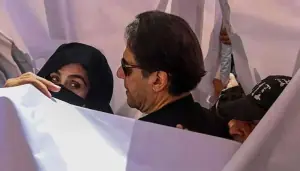
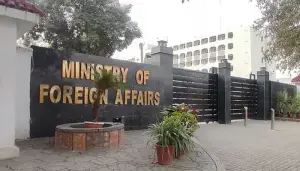


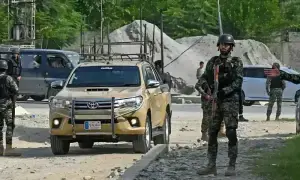
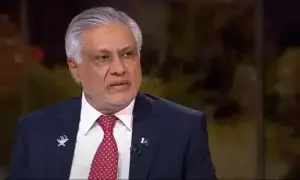

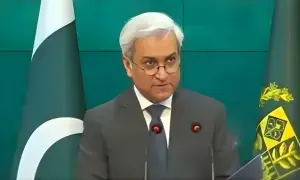
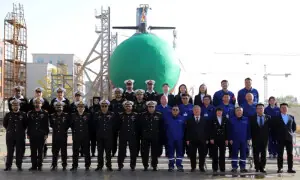
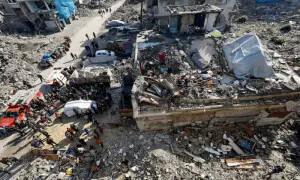
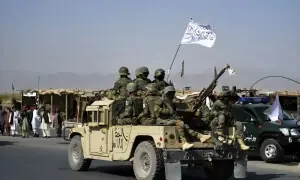
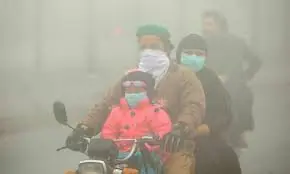
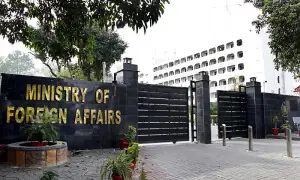
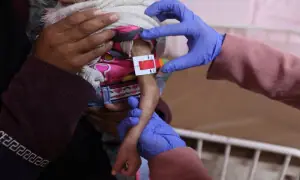
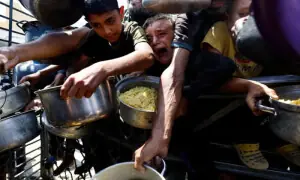
Comments are closed on this story.